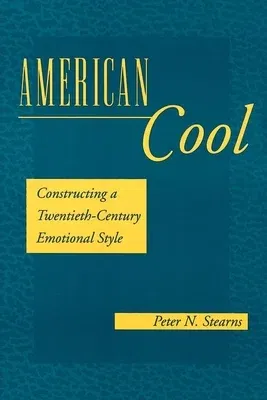Peter N Stearns
(Author)American Cool: Constructing a Twentieth-Century Emotional StylePaperback, 1 April 1994

Qty
1
Turbo
Ships in 2 - 3 days
In Stock
Free Delivery
Cash on Delivery
15 Days
Free Returns
Secure Checkout

Part of Series
History of Emotions
Part of Series
History of Emotion Series
Print Length
378 pages
Language
English
Publisher
New York University Press
Date Published
1 Apr 1994
ISBN-10
0814779964
ISBN-13
9780814779965
Description
Product Details
Author:
Book Format:
Paperback
Country of Origin:
US
Date Published:
1 April 1994
Dimensions:
23.06 x
15.16 x
2.41 cm
Genre:
20th Century
ISBN-10:
0814779964
ISBN-13:
9780814779965
Language:
English
Location:
New York
Pages:
378
Publisher:
Weight:
557.92 gm